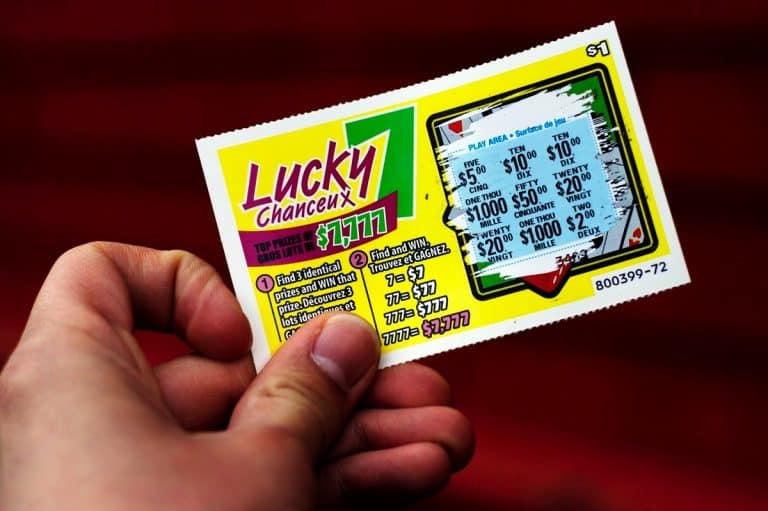Understanding fake social media competitions
There are many legitimate competitions on social media, but unfortunately scammers try to take advantage of their popularity. These scams can spread quickly and reach a lot of people in a short period of time before they are identified and shut down. We’ve put some information together about what they are and how to avoid…

There are many legitimate competitions on social media, but unfortunately scammers try to take advantage of their popularity. These scams can spread quickly and reach a lot of people in a short period of time before they are identified and shut down. We’ve put some information together about what they are and how to avoid them.
How do the scams work?
These fake competitions scams run on social media to try and reach as many people as they can. Scammers often impersonate familiar brand names so you’re more likely to trust them. Posts about the competitions are published by scammers in the hope that people will reply with personal information, which can lead to identity theft. The scammers might also contact you to let you know that you’ve won the competition and then ask you to send money to ‘release the prize’ or for ‘shipping costs’, but the scammers will keep any money sent to them.
5 tips to avoid fake social media competitions
These tips are indications that a competition could be a scam. Use this advice to do a check and make sure that you’re confident a competition is legitimate. If you’re not confident that this is a legitimate competition we recommend you do not enter the competition.
Tip #1: If it’s a big name brand or public figure, look for the verified tick
Some scammers use similar brand names and logos as trusted brands to make people believe the competitions are real. Most large brands or public figures who are of interest to the public will be verified by the social media platform they are on. If you see a post or advertisement about a competition from a big brand or public figure, look for the blue tick. You may need to click through to the page/profile to see the tick.
Here’s what it will look like on different social media platforms:
Left to right: Facebook, Twitter & Instagram.
Tip #2: Look at the profile/page
Go to the profile or page to investigate. Look at how long it has been active for and look at their other posts and content. Often these scam pages/profiles will be new and only have only a few posts. Usually most of these posts will be about the competition or other competitions. Unless it’s a new business, most legitimate competitions will be from pages/profiles that have a long history of sharing content on social media.
Tip #3: Think about the prize being given away
Although some legitimate competitions will offer valuable competition prizes, often social media competition scams will offer hugely valuable prizes as a hook. Think about if the prize is realistic for the organisation to give away. You should also look out for pages/profiles offering competition prizes that seem strange for that particular organisation.
Tip #4: Look at the website
If the competition takes you through to a website to enter, take a close look at it. Look at the URL (the web address) to see if it lines up with the organisation running the competition or the competition name. If something seems off, exit the website.
Tip #5: Entry forms asking for too much detail
Be wary if the entry form asks you for more information than you think is necessary. You should always protect information that can be used to access your accounts, build a fake online presence or impersonate you including:
- Login details and passwords to any online account including banking, email, social media and trading sites
- Bank account and credit card details
- Address
- Phone number
- Birthdate
- Personal information linked to the security questions on your online accounts
- Driver’s license
- Passport details
You should also be careful about giving away your name and email address, however it is common to ask for these in legitimate competitions. Organisations often run competitions to get more information about customers, or new email addresses to be able to market products/services to you at a later date. Always think carefully about who you trust your email address and other information with, because you are relying on their systems and practices to keep your information safe.
If you see a scam competition
If you see a post about a competition on social media that you believe is a scam, you should report the page/profile to the platform that it’s on. If you’ve seen friends sharing the competition, you can also get in touch with them to let them know, so that they can delete the post to stop others being scammed:
If you’ve entered a scam competition
- If you have shared any banking information, such as credit card details, you need to report this to your bank immediately. They can implement further security measures to protect your account.
- If you have given the scammer any personal information we suggest that you read this Identity Theft Checklist – a helpful guide on what could happen with your information. If you believe you were exposed to identity theft we recommend you contact iDCare as they provide free help and support.
- If you’ve shared the post on your social media account, you should delete the post so that others aren’t affected. You could also put up another post letting people know that the competition was a scam.
- If you see other friends or family sharing it, let them know that you think it could be a scam.
REPORT A SCAM
Netsafe can’t open investigations or track scammers, but we can offer advice for people who have lost money in a scam or think they are about to. This includes letting you know the steps you can take and giving you advice about how to stay safe in future. You can report a scam to www.netsafe.org.nz/report.
MORE INFORMATION
Keep up to date
Follow us on social media and sign up to our enewsletter for alerts, news and tips.







